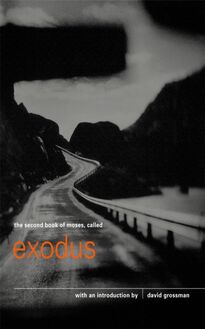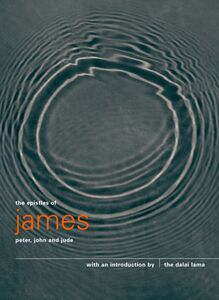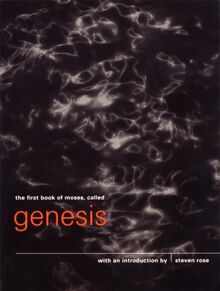First and Second Books of Samuel , livre ebook
96
pages
English
Ebooks
1999
Vous pourrez modifier la taille du texte de cet ouvrage
Obtenez un accès à la bibliothèque pour le consulter en ligne En savoir plus
Découvre YouScribe et accède à tout notre catalogue !
Découvre YouScribe et accède à tout notre catalogue !
96
pages
English
Ebooks
1999
Vous pourrez modifier la taille du texte de cet ouvrage
Obtenez un accès à la bibliothèque pour le consulter en ligne En savoir plus
Publié par
Date de parution
01 janvier 1999
Nombre de lectures
2
EAN13
9780857861030
Langue
English
Contents
Title Page a note about pocket canons introduction by meir shalev the first book of samuel otherwise called, the first book of the kings 2 3 4 5 6 7 8 9 10 11 12 13 14 15 16 17 18 19 20 21 22 23 24 25 26 27 28 29 30 31 the second book of samuel otherwise called, the second book of the kings 2 3 4 5 6 7 8 9 10 11 12 13 14 15 16 17 18 19 20 21 22 23 24 Copyright
a note about pocket canons
The Authorised King James Version of the Bible, translated between 1603–11, coincided with an extraordinary flowering of English literature. This version, more than any other, and possibly more than any other work in history, has had an influence in shaping the language we speak and write today.
Twenty-four of the eighty original books of the King James Bible are brought to you in this series. They encompass categories as diverse as history, philosophy, law, poetry and fiction. Each Pocket Canon also has its own introduction, specially commissioned from an impressive range of writers, to provide a personal interpretation of the text and explore its contemporary relevance.
introduction by meir shalev
Meir Shalev, one of Israel ’ s most celebrated young novelists, is the author of Four Meals, Esau and Roman Russi , all of which have been literary and commercial successes. His latest novel, Alone in the Desert , has enjoyed best-seller status in Israel and in Holland. His books have been translated into thirteen languages. Shalev has also written a collection of biblical commentaries, The Bible for Now , and a book of literary criticism, Mainly about Love . He also writes children ’ s books, and is a columnist with the Israeli daily newspaper, Yediot Ahronot . He lives in Jerusalem with his wife and children.
‘ Ruddy, and Withal of a Beautiful Countenance ’
Of the three main characters in the Book of Samuel , only two died. King Saul, a tragic, haunted figure, fell on his sword at Mount Gilboa. Samuel the prophet, a benighted religious zealot, is brought back from the dead once, then sinks into oblivion forever. Aside from the two books at hand, the books that bear his name, he left nothing worth pining for. But David, king of Israel – as we children of Israel are fond of singing – Lives and breathes.
Three thousand years after the death of David we still wait for him to reappear, we read the psalms attributed to him, we even let him participate in political discussions on the future of the Middle East. But like another ruddy, charming, shrewd war hero – Odysseus – David, too, has a deep, personal side, emotional and spiritual. Today, three thousand years later, it is far more interesting than his politics or liturgy.
Like many other Israelis, I met King David. I was nine at the time, and my father took me to the valley of Elah, between Shochoh and Azekah. Ceremoniously planting himself in the middle of the valley, he announced that here David had killed Goliath. He read me I Samuel 17 and instructed me to pick up five pebbles; when I touched the smooth, rounded stones, I – a short, bespectacled boy – felt as though I were clasping Excalibur and fighting off all the evil Goliaths of the world.
The victory over Goliath is not David’s first appearance on the Biblical stage. It was preceded by the prophet Samuel’s visit to Bethlehem, where David was anointed king. In the finest tradition of fireside stories, Samuel saw before him a young man who ‘was ruddy, and withal of a beautiful countenance, and goodly to look to’ (1:16:12) and underestimated him. Samuel saw with his eyes, but the Lord, who saw into the heart, said: ‘Arise, anoint him: for this is he’ (1:16:12).
We next meet David when he comes to play for Saul. Here he is described with more impressive, magnanimous adjectives: ‘… [he] is cunning in playing, and a mighty valiant man, and a man of war, and prudent in matters, and a comely person, and the Lord is with him’ (1:16:18). Without reservation, this is a description of the perfect man: he is wise, handsome, brave, an artist favoured by God. No wonder his star rises, no wonder he ascends higher and higher, and no one – friend or foe – can resist his charm, his might, or his wisdom.
All five of these characteristics – courage, wisdom, artistic ability, beauty, and good luck – will be manifested at one stage or another of David’s life; this is obvious. But often the Bible requires a closer reading, even a creative understanding of the text.
Although not apparent on first reading, I am referring to one of David’s most basic characteristics, which may result from the combination of the five traits listed above. That is, his ability to kindle love in the heart of another. On the wings of this love David ascended to lofty heights.
‘ And Jonathan Loved Him as His Own Soul ’
The reader of the chronicle of David will discover that the word ‘love’ is used extensively in the Book of Samuel : ‘And David came to Saul, and stood before him: and he loved him greatly’; ‘… the soul of Jonathan was knit with the soul of David, and Jonathan loved him as his own soul’; ‘And Michal Saul’s daughter loved David’; ‘… for Hiram was ever a lover of David’; ‘But all Israel and Judah loved David …’
Not one Biblical figure was the object of as much love as David. But closer inspection reveals an additional phenomenon: every time the verb ‘love’ is connected to David’s name, the love is directed at him, but does not emanate from him to another. Saul, Michal, Jonathan, Hiram king of Tyre, the people of Judah and Israel – all of them loved David, but who did David love? At the linguistic level, David did not love even one person – the verb ‘love’ is never used to describe his relation to anyone.
To return to the lovers of David, King Saul loved him and wanted his life at one and the same time. His children, Jonathan and Michal, loved David fully and entirely, without reservation or score-keeping. In particular, this is ascribed to Jonathan. I do not see the relations between them as homosexual but they do seem to be ‘soulmates’. One way or the other, Jonathan, like his sister Michal, loved David ‘as his own soul’ and, like her, betrayed the interests of both Saul’s lineage and himself because of that love.
In his famous lamentation over the death of Saul and Jonathan, David says: ‘I am distressed for thee, my brother Jonathan: very pleasant hast thou been unto me: thy love to me was wonderful, passing the love of women’ (2:1:26). It is interesting that he says ‘thy love to me’ rather than ‘my love to thee’ or ‘our love’.
David’s lamentation over Saul and Jonathan is a political and literary masterpiece. It expresses not only his grief, but also his perception of leadership. In effect, it is so polished and calculating that the reader is liable to think that David is either hiding his emotions or perhaps has none. But was David lacking in emotion? Absolutely not.
His terrible pain over the death of his son Absalom, with his horrifying, unpolished wail that rends the heart of the reader even today: ‘… would God I had died for thee, O Absalom, my son, my son!’ (2:18:33) – these words testify to immense depths of soul and emotion. But strangely enough, the word ‘love’ is absent even from David’s relation to Absalom, and to his children in general. This is odd, because the text provides a picture of a devoted father, concerned and coddling, sometimes in excess, as with Amnon, Absalom and Adonijah, his unsavoury and debased sons, whom he refused to scold. The verb ‘love’ is absent from his relation to them, whereas it is prevalent in the descriptions of other Biblical fathers’ relations with their children.
‘ Went … Along Weeping ’
In the description of David’s relationship to women, the writer refrains from using the specific word ‘love’, and here, too, this is in contrast to other relationships between men and women in the Bible: Isaac loved Rebekah, Jacob toiled for Rachel for seven years, ‘and they seemed unto him but a few days, for the love he had to her’ ( Gen . 29:20). Of Samson it is said: ‘he loved a woman in the valley of Sorek, and her name was Delilah’ ( Jud . 16:4). Amnon said of himself: ‘I love Tamar, my brother Absalom’s sister’ ( Sam . 2:13:4). Elkanah preferred Hannah to Peninnah, ‘for he loved Hannah’ ( Sam . 1:1:5). Of Ahasuerus it is said: ‘And the king loved Esther above all the women’ ( Esther 2:17), and King Solomon, emotional profligate that he was, ‘loved many strange women’ ( Kings 1:11:1).
David, unlike all of them, did not love his women but rather made use of them: in Abigail he found an ally, and one who gave him a private lesson in eliminating opponents. Michal was his ticket into the royal family. And Abishag and Bath-sheba served to fulfil much more basic needs. He, of all people, though famed in this regard, did not love a single woman.
This is never more noticeable than in regard to Michal, Saul’s daughter. She is the first woman who loves him, and she is the tragic figure, the one who suffers most from lacking his love. David enters her father’s palace as a victorious and handsome hero, he rises to greatness in his court and his army, he amazes Michal when he clasps a sword or plucks a harp, he brings her father two hundred Philistine foreskins to win her. Both Michal and Jonathan succumb to his charm. Both of them sacrifice their interests and those of their family for him. Both shield him, spy for him, save him from their father’s hand – and neither wins reciprocal attention from him.
Like Jonathan, Michal, too, betrays her father for her beloved, and the climax is on the same night when she warns him: ‘If thou save not thy life tonight, tomorrow thou shalt be slain’ ( Sam . 1:19:11). She lets David out through a window so that he can flee the palace. The next time the two meet, David will be married














